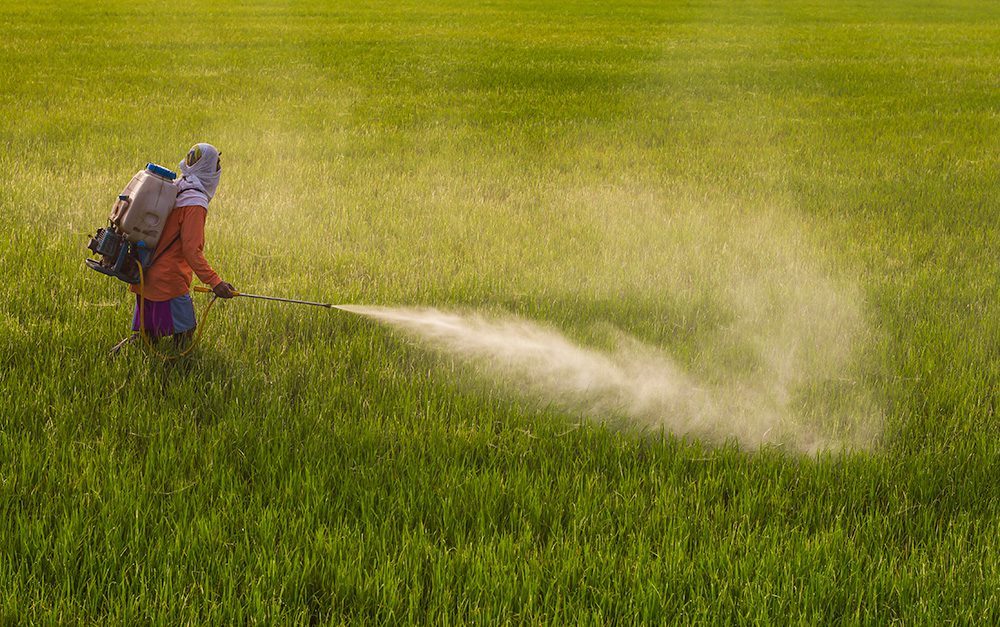The Bitter Harvest: Pesticide Use Skyrockets, Threatening Global Health and Biodiversity
11/19/2022
In the quiet battle waged across the world’s fields, a silent assailant has been gaining ground since 1990, leaving a trail of devastation in its wake. Pesticide use, according to a recent report, has nearly doubled over the past three decades, reaching alarming levels that threaten not just human health but the very fabric of biodiversity on our planet.

The findings of the Pesticide Atlas, a comprehensive study tracking the global proliferation of these toxic chemicals, paint a harrowing picture of our modern agricultural landscape. Since 1990, the use of pesticides has surged by a staggering 80%, propelled by a market set to breach the $130 billion mark next year. But behind this economic boom lies a grim reality that cannot be ignored.
As the demand for higher yields and pest-resistant crops has intensified, so too has the reliance on pesticides. These chemical concoctions, designed to combat pests and weeds, have become ubiquitous in our food production systems. However, their indiscriminate use comes at a steep cost.
According to the report, pesticides are responsible for an estimated 11,000 human fatalities annually, with a further 385 million people suffering from poisoning each year. These statistics are not just numbers on a page; they represent lives lost and communities ravaged by the toxic fallout of modern agriculture.
But the impact of pesticides extends far beyond human health. Biodiversity, the delicate web of life that sustains our planet, is under siege. Populations of field birds and grassland butterflies have plummeted by nearly 30% since 1990, victims of the collateral damage wrought by pesticide use. Even Europe’s iconic bees, essential pollinators crucial for food production, are facing extinction due in no small part to the toxic chemicals that saturate their environment.
Clara Bourgin, a campaigner at Friends of the Earth Europe, warns that the evidence is staggering and that the current food system, built on the heavy use of poisonous chemicals, is failing both farmers and consumers alike. She urges the European Union to heed the calls of its citizens and take decisive action to curb the toxic trade that threatens to undermine our collective future.
Yet, the path to change is fraught with obstacles. The EU finds itself torn between competing interests, as farming lobbies clamor for the continued use of pesticides even as evidence mounts of their destructive impact. The recent failure to reach a consensus on extending the authorization for glyphosate, a key ingredient in Bayer’s Roundup herbicide, highlights the contentious nature of pesticide regulation.
Moreover, geopolitical tensions and concerns over food security have further complicated the issue. The EU, faced with the escalating conflict in Ukraine, has relaxed some of its green agriculture rules, prioritizing short-term stability over long-term sustainability. This shift in priorities has raised fears that environmental considerations may be sacrificed at the altar of political expediency.
Meanwhile, the export of banned pesticides to developing countries continues unabated, perpetuating a cycle of environmental injustice and human suffering. Despite pledges to end these toxic shipments, legislative action has been conspicuously absent, leaving vulnerable communities to bear the brunt of our chemical excess.
In light of these challenges, the need for urgent action has never been clearer. Environmental advocates and lawmakers alike are calling for bold measures to rein in the rampant use of pesticides and safeguard both human health and biodiversity. From stricter regulations on pesticide use to comprehensive bans on toxic exports, decisive steps must be taken to confront this looming crisis.
The findings of the Pesticide Atlas serve as a wake-up call to the world, a stark reminder of the consequences of our unsustainable agricultural practices. The time for complacency is over; the time for action is now. Only by working together can we hope to stem the tide of pesticide use and build a future where food production is both abundant and sustainable, without sacrificing the health of our planet or its inhabitants.
